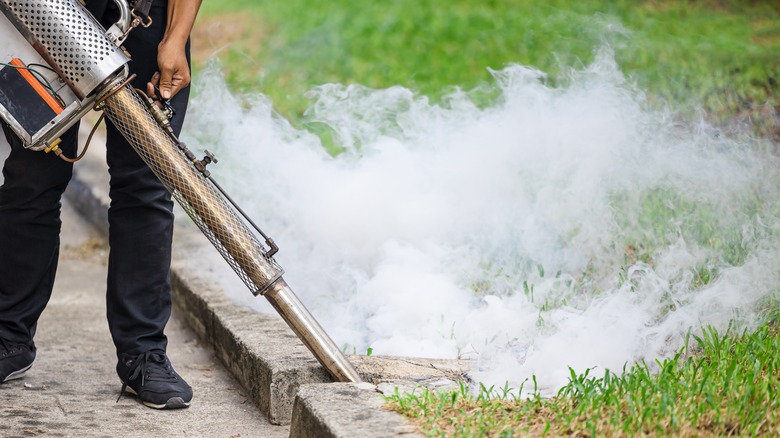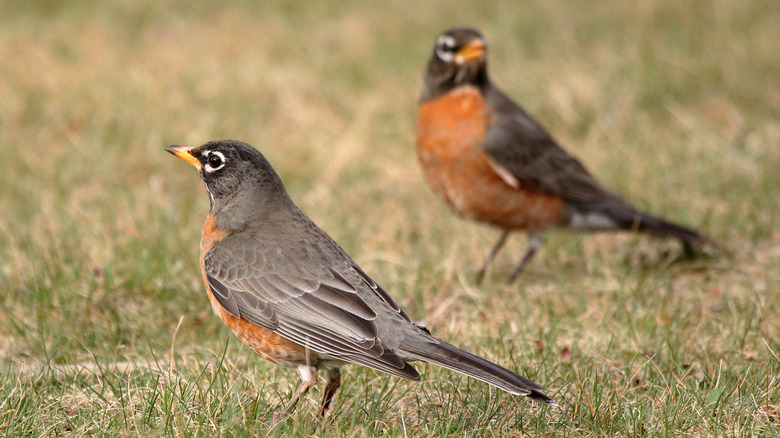Know This Before Using Mosquito Spray If You Want To Attract Birds & Pollinators
Mosquitoes are more than just a nuisance; they can also spread serious diseases. That said, it's no wonder many people are willing to hire companies that promise to eliminate these pests with insecticides. Many mosquito control companies even assure customers that their sprays only target mosquitoes. Sadly, this is not the case, and these sprays are also quite toxic to native pollinators and even pets and people.
While pyrethrin, one of the most common active ingredients in commercial mosquito sprays, is derived from chrysanthemum flowers, that definitely doesn't make it safe for wildlife. Pyrethrin and synthetic versions of it called pyrethroids are broad-spectrum insecticides, meaning they don't only impact mosquitoes, but also butterflies, bees, and fireflies. They can also be harmful or even fatal to birds. The California Department of Health and Human Services notes that while these chemicals are generally less toxic to people and other mammals, there is evidence that they can cause allergic reactions, headaches, and dizziness, and that chronic exposure may even be carcinogenic.
Mosquito repellents vs mosquito control sprays
Despite the serious potential downsides for the health of humans, pollinators, and other wildlife, mosquito sprays may still seem worth it if you're dealing with a severe enough infestation. Disturbingly though, on average these expensive sprays only kill around 10% of adult mosquitoes. This does little to reduce the mosquito population in most cases and may not even be enough for you to notice a difference.
To be clear, the insecticidal sprays that companies use to treat mosquitoes in yards are not the same as mosquito repellents and bug sprays that you apply to your skin or clothes. Mosquito repellents, whether DIY or store bought, can be a useful tool in protecting yourself against mosquitoes and other pests as long as you read the instructions and use them correctly. These products generally aren't designed to kill mosquitoes, but to simply make it more difficult for them to notice you and are unlikely to harm pollinators or other animals.
Ways to keep your yard mosquito free without harming other wildlife
Considering how expensive, ineffective, and dangerous to wildlife mosquito sprays are, you may be looking for better options for eliminating mosquitoes from your yard. The best way to avoid a yard full of adult mosquitoes is to make sure you don't have a yard full of mosquito larvae. Since mosquitoes lay their eggs in standing water, removing places water can collect is a great way to limit mosquitoes in your yard. Make sure you don't have any clogged gutters, yard tools, or buckets that can fill with water, or uncovered rainwater collection systems. If necessary, you can use products containing Bti (Bacillus thuringiensis subspecies israelensis), which is a bacteria that kills mosquito larva. Unlike broad spectrum products, Bti is targeted and only impacts mosquito, black fly, and fungus gnat larvae.
Don't forget to fill your yard with plants that deter mosquitoes and attract mosquito predators as well. The gorgeous magenta-colored beautyberry bush has a reputation for repelling mosquitoes, as do herbs like rosemary and lavender. You can also encourage mosquito-eating birds like robins and hummingbirds to come to your yard and feast on the pests.


